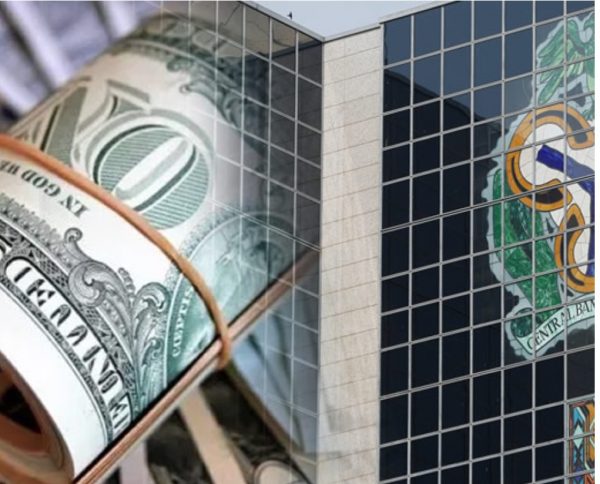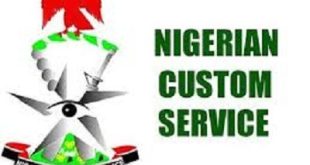
*CBN caught in-between policy contradictions
*Mixed reactions trail policy as pressure on naira intensifies amid fears

Mixed reactions have continued to trail the Central Bank of Nigeria (CBN) lifting of forex participation restriction on 43 items, which has been described as a move to deepen the floated naira and the cessation of the apex bank from fiscal policy interventions even as MMS Plus reveals how banks aided the failure of dollar restriction policy on select items.
This has also raised economic ideological conflicts between government’s policy of local production protectionism and revenue generation on one hand and trade facilitation and trade protection on the other hand. As antithetical as they both seem, analysts believe that they are geared toward economic growth but their ripple and multiplier effect are worlds apart.

In a policy document released last week, the Director, Corporate Communication of CBN, Isa Abdulmumuni said,“Importers of all the 43 items previously restricted by the 2015 Circular referenced TED/FEM/FPC/GEN/01/010 and its addendums are now allowed to purchase foreign exchange in the Nigerian Foreign Exchange Market. The CBN is committed to accelerating efforts to clear the FX backlog with existing participants and will continue dialogue with stakeholders to address the issue.”
However, this has drawn some flakes of mixed feelings from operators . According to a trade policy analyst and Head of Transport group, Nigerian Economic Summit Group(NESG) ,Dr. Ikenna Nwosu,
“The pressure on the dollars in Nigeria is high and the truth of the matter is, the central bank policy is very wrong.
“The lifting of the restriction on 43 items is a very welcome but with absolute pressure. This is the last quarter of the year, the last quarter is the quarter that has the highest volume of importation, that’s pressure on the dollar. I am giving you reasons why there is pressure on the dollar. One, Importation, two, students are resuming new school session oversea, undergraduates and postgraduates, including their flight. People are planning for Christmas, flights and hotels, that’s still dollar, so these three alone apart from others put up the problem.
“Now, the federal government has cancelled special window for students. So students are buying dollar at market rate, so that’s added pressure on the dollar. The last quarter of the year is when you have the highest rate of movement, so a lot of companies are carrying people from Lagos to the East and all part of the country with a lot of petrol and diesel, so these are all the causes.
So, the impact, of course, it has inflation, again with the high rate, custom are going to raise the exchange rate for dollar, for calculating import duty, that will affect the cost of goods and services. There is likelihood the federal government is going to raise the pump price of fuel and if this is done, you know the slope of the chart. cost of food, transport, salary would be affected nationwide, so that’s it.
To him, the policy is not entirely absurd, “CBN’s decision is correct but I fault the strategy of not intervening, it is wrong, they should have intervened on bringing foreign exchange into the market, that’s just my recommendation and they should create a special window for students.
Create a window for health, people buying dollar for health issues abroad and intervene with foreign exchange into the market so that the pressure on the dollar will drop. There are no places in the world that any responsible government will leave its foreign exchange rate to market forces, it’s not done, without national security implications.”
In his swift reaction, a player in the maritime and real sectors of the economy, the Chairman/CEO of Elschon Nigeria, Dr.Emi Membere-Otaji said:”This will have a run further on the exchange rate, which I learnt was about N1,050 to a dollar on Thursday. People say it could get to N1,500 before December, and this could be the tipping point. These items have to be imported because they can now do it in the open through Form M and Letter of Credit. They used to go behind to source money to import. The mind set has always been, if the CBN does not give me, I will go to the Mallam and get it. And when I bring it in I make the consumers pay the price difference. It will make dollar go up. And it will drive another increase in import duty.”
Speaking, Dr Muda Yusuf of the Centre for Promotion of Private Enterprises (CPPE) welcomed the decision of the CBN to discontinue the forex exclusion policy on the 43 items. It is a move in the right direction. It is part of the policy normalisation process.
“The exclusion of the 43 items was one of the several drivers of distortions in the forex market. The exclusion of the items also contributed to the persistent divergence in rates between the official window and the parallel market. The exclusion was also in conflict with extant trade policy as the items were not under import prohibition in the first place. It was an example of lack of policy coordination under the previous administration.
“The new directive will also improve transparency and disclosures in foreign exchange transactions. Meanwhile, the CBN should avoid market suppression tendencies, especially outside the I and E window. All policy impediments to forex inflows should be removed.
“The fiscal authorities should continually monitor the economic landscape to shape the character of fiscal policy measures to regulate imports in line with comparative advantage principles. We need to worry about the risk of import surge. There is also a need to upscale the use of fiscal policy measures to boost domestic production and productivity”, he added.
In defense of the policy, a trade analyst who spoke to MMS Plus gave a revealing insight to why the federal government has deemed its policy choice imperative even when its policy conflict and contradiction.
“Some importers import as much as 200 containers of the dollar restricted items by sourcing dollar from banks who channel their demand through the black market. So the restriction was not making sense and government may have discovered that.
Rice is one of the restriction affected items. In fact, Nigeria deludes itself with rice sufficiency. Now, government restricted rice importers from accessing forex and increased its duty by 100 per cent that is, 75per cent duty rate and 25 per cent levy. This excludes 7per cent surcharge and VAT of 7.5 per cent as well as other fees. It means that when you import rice of N10 you end up paying N13 to clear it, excluding shipping and terminal charges.
He stated further, “They made it difficult because you use tariff to protect local producers. It is a normal practice globally. But rice keep coming in containers through the ports and they clear them as Plaster of Paris(POP) ceiling made of water and fibre, which attracts only 5 per cent duty. With 10, 000 dollars you can import 40 feet container of POP. They use 20 feet container to bring in rice and pay 5 per cent duty as POP. You don’t pay penalty, no levy but pay only 5per cent duty rate meanwhile that is not rice.
“Unfortunately, the National Bureau of Statistics ( NBS) will capture the import as POP because that is what is in the manifest and the Nigeria Customs Service, NCS system. With this, you will see foreign rice littering the market and then you ask where they are coming from. However, because NBS fails to capture the correct import and value they conclude that rice import rate has dropped significantly and as such the nation is rice-sufficient.
“But when you enter the market, over 70 per cent of the rice in the market is foreign rice. The question is: How did they come in? They were not captured in any system and duty was not paid on them. So, it is better they access forex officially. They should open Form M and Letter of Credit officially on them and pay duty on the import. Under the restriction, government loses everything. If they are sourcing money officially, they have to open letter of credit because CBN will not give you money but transfer the money direct to your supplier. And you have to retire that LC used to pay duty.
“So essentially, it will not affect the prices of things in the market. Those against it are speaking from the prism of knowledge gap. Emefiele, in the first place, was not supposed to interfere with fiscal policy because it is not his bit. He did not have the authority. The issue is that we had a Finance Minister who did not know her left from right..
“So, Emefiele became Agriculture Minister, Finance Minister and in fact, Minister of everything. He had no business with Anchor Borrowers’ Fund(ABF) and how it was disbursed. The current CBN governor wants to gradually pull CBN out of fiscal policy intervention and that is why he lifted the restrictions. CBN wants to disentangle themselves from fiscal policy measures.” He added.
While the restriction removal seeks to increase import revenue which aligns with more revenue focus of President Bola Tinubu’s administration, it has blighted and undermined the local industry protection policy of President Muhammadu Buhari’s regime. On the flipside is the tacit move to facilitate international trade when the economy is in dire need of export promotion to shore up the value of naira against the dollar. To observers, this is an obvious contradiction.
Meanwhile,the CBN Governor, Oluyemi Cardoso, said in the policy document that the apex bank is currently evaluating how much of the backlog is real versus speculation and hoarding.
The bank is also exploring the availability of creative financing options for clearing the short to medium-term backlog and what mechanisms exist to address forex rate unification under a willing buyer and willing seller arrangement.
The apex bank stated that it will continue to promote orderliness and professional conduct by all participants in the Nigerian Foreign Exchange Market to ensure market forces determine exchange rates on a Willing Buyer – Willing Seller principle.
It cautioned that the prevailing Foreign Exchange rates should be referenced from platforms such as the CBN website, FMDQ, and other recognised or appointed trading systems to promote price discovery, transparency, and credibility in the FX rates.
 MMS PLUS NG – Maritime, Aviation, Business, Oil and Gas News Online Newspaper with coverage in Maritime, Oil and Gas, Aviation, Power and Energy as well as Financial News
MMS PLUS NG – Maritime, Aviation, Business, Oil and Gas News Online Newspaper with coverage in Maritime, Oil and Gas, Aviation, Power and Energy as well as Financial News









